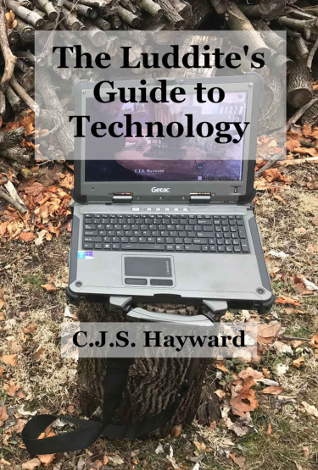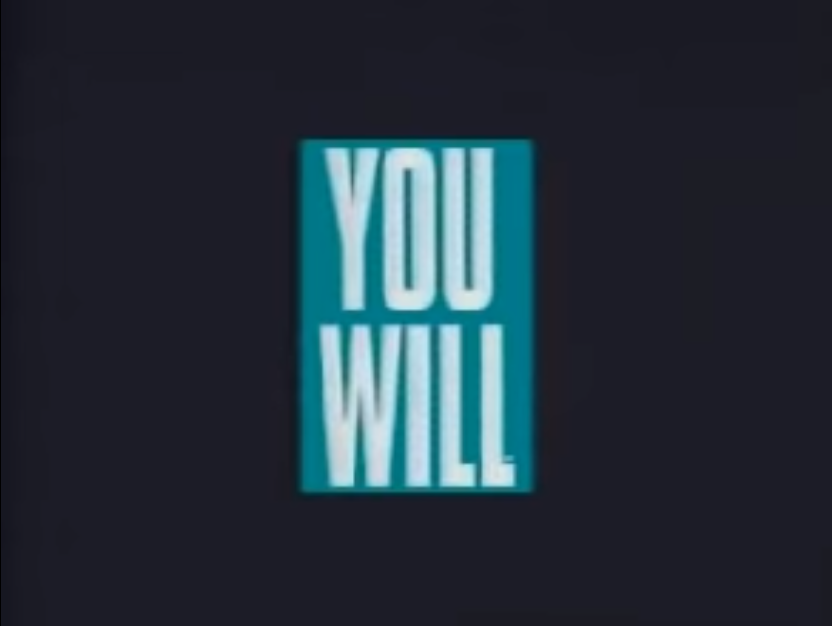The reason for this work
This piece arose from a conversation with a fairly bright friend I had where I realized I had been putting important points of data out but not explaining or clarifying very well how they were connected, assuming connections were obvious when they weren't. This piece is not intended to add anything new to my portfolio of documents, but to explain and/or re-explain with more "connective tissue" where the reader will be told how they fit together.
Clearing away one distraction
The effort to go virtual made more painfully apparent the resource disparities affecting the underprivileged. I acknowledge such, but my point has nothing really to do with that. No objections to such discussion, but I am not attempting such a discussion here. I am discussing something else.
An example of a gap
To illustrate the kind of gap I am talking about, I would like to look at Bridge to Terebithia, which is partly driven by a cultural gap between a poor farmboy and an urban gal whom the author marks as being Privileged with a capital ℙ. It's not just that, as the Wikipedia article points out, that her family is the one family in town where "Money is not the issue." Her family does not own a television, a point which prompted the farmboy to assume her family is too poor to own a television. Other markers where the author attaches a bold-font label of "Privileged" are that she does not know the Easter story, but listens to it with some wonder and says it's like the story of Socrates's trial and death, or Aslan in the Chronicles of Narnia.
The story is largely a story of cross-cultural encounter, and it is so no less because the two central characters are both U.S. citizens, both white, of the same age, and for that matter are both can run. The privilege is not just that the girl's parents are wealthy and purchase a rural house to take a break and re-evaluate their priorities. Not owning a television is a major marker of the girl's Privileged family, and I will consider that very important in the points that follow. But my other major reason for presenting this, besides my wanting to underscore that the girl's family Does Not Own a Television, is that studying and exploring a gap across what really amounts to culture is a large portion of what drives this story and makes this Newberry Award winner interesting.
Gaps like these, in my opinion, are well worth paying attention to, and it is my intent in this post to understand a few gaps and reap something very worthwhile from minding the gaps.
Why I disagree with "In the future, we'll all be Harry Potter"
Jakob Nielsen in In the future, we'll all be Harry Potter writes:
By saying that we'll one day be like Harry Potter, I don't mean that we'll fly around on broomsticks or play three-dimensional ballgames (though virtual reality will let enthusiasts play Quidditch matches). What I do mean is that we're about to experience a world where spirit inhabits formerly inanimate objects.
Much of the Harry Potter books' charm comes from the quirky magic objects that surround Harry and his friends. Rather than being solid and static, these objects embody initiative and activity. This is precisely the shift we'll experience as computational power moves beyond the desktop into everyday objects.
Next-Generation Magic
I do not contest Jakob Nielsen's assertion that in the future we will have technology that sounds astounding by today's standards. That much is indisputable. However, I strongly dispute the implication that to people living in that reality, it will be a world of wonder, or a world that we could wish were real to us, the way Harry Potter fans wish on some level they could live at Hogwarts.
I wish to assert, unfold, and unpack that however much some technologies may initially wow people who don't have them, the future is this shimmering, desirable place the way Harry Potter's Hogwarts is a place people so much wish that they could be their real world.
A meme about a gap: Old Economy Steve
There is a group of memes that rub in the smiling, pimply white face of some poor guy's high school yearbook photo with a generic, mid-70's hairstyle. They spitefully rub things in about a clueless, out-of-touch Old Economy Steve, and rub in that he is specifically clueless about the gap separating young people from himself:
Goes to law school.
Pays student loans with first paycheck.
Brought a house in his 20's with a 9 to 5 job that didn't require a bachelor's degree.
"Kids these days have it easy."
"When I was in college my summer job paid the tuition."
Tuition was $400.
Pays into Social Security.
Receives benefits.
Becomes homeowner at 22.
Tells son's generation it's lucky because it can afford $200 smartphones.
Said, "Too many C____s, not enough I____s."
Middle manages minimum wage employees.
"At my first job I only made $15k a year."
In 1979 that was the equivalent of $47k.
Got my dream job,
By answering a classified ad.
"Why don't you call and ask if they're hiring?"
Hasn't been on a job hunt since 1982.
"I worked all summer to buy a car."
Corvette!
Grows up in one of the world's best economies.
Creates the worst global economy the world has ever seen.
("And all this before COVID," one might add!)
Now I would like to ask you to keep one eye on what Old Economy Steve doesn't get about our economy today, and watch a series of famous 1993 ad campaign run by AT&✁✆✇.*T.
In all or almost all of these things, we have pretty much what the advertisement stated, or something that makes said prediction simply obsolete. I admit readily that electronic toll collection is far more convenient than keeping track of various denominations of coins and stopping at a tollbooth and trying to throw the coins into one of those funnels, and the demolition derby to get back on to the regular highway. For that matter I see our toll collection as more convenient than what the commercial promises: we don't even need to swipe a credit card through a reader to pay a toll; we just drive through at full speed and are charged the toll...
...but the actor in the ad displays an almost sexual thrill at being able to pay a toll while driving at full speed, and whatever the experience is like for us to whom it is an everyday activity, our experience is hardly an orgasm.
What we have now is simply not Old Economy Steve's economy with draining charming and wonderful phones tacked on. And this has something to do with why I believe technology is part of our poverty.
Here and now, I submit, we are already living "In the future, we'll all be Harry Potter." The clarification on Jakob Nielsen's part of "By saying that we'll one day be like Harry Potter, I don't mean that we'll fly around on broomsticks or play three-dimensional ballgames" is already obsolete: we have flying motorcycles and with some basic Internet of Things features we could make three-dimensional ballgames no more dangerous than Harry Potter's Quidditch. And it is probably child's play, for initiates, to print an ornamental level of broomstick-themed decoration, even though a flying motorcycle may still look like a flying motorcycle:
"In the future we'll all be Harry Potter" and "YOU WILL and the company that will bring it to you is AT&✁✆✇.*T" meet together. The prediction that we will carry our medical records in our wallets is obsolete because we have Internet-enabled health records. It is beside the point that a credit card sized device can carry our medical records. It is also obsolete to predict that in the future we will be able to get custom concert tickets from an ATM. We can buy tickets, pick seats, and show a QR code on our smartphones. And there is something quaint about the image of an enchanted mother giving best wishes to a baby through video phone booths; we can Zoom chat with laptops and mobile devices but some of us find mandatory Zoom chats depressing next to conversing face-to-face.
All this said, we ain't in Old Economy Steve's economy any more, and technology is part of our poverty.
In one post to a friend, I wrote,
Have you ever drained yourself by compulsively checking your phone easily a hundred times a day?
Have you ever had several Big Brothers know your every every step, every heartbeat?
Have you ever had every keystroke you've ever typed be recorded and available to use against you for all your remaining life?
Have you ever met people from the last generation that remembers what life was like before the world went digital?
and AT&T ain't the only company that will bring it to you!
Conclusion: My own privilege
Having discussed how we have at least somewhat "Harry Potter"-like technologies, but we ain't enjoying Old Economy Steve's "Hasn't applied for a job since Jimmy Carter—'You need to hit the bricks to find work. That's what I did.'" living conditions any more, I would like to add an additional note, and tie in something from the beginning of this article, the Privileged girl in Bridge to Terebinthia.
I am in at least one privileged position comparable to the girl whose family doesn't have a television.
I own a cellphone, and it doesn't run my life.
(One I purchased a couple of years ago, used.)
I used to get sucked into social media, but have backed away to 5-10 minutes' social media interaction per month, generally to announce something.
I read (among others) Jean-Claude Larchet's The New Media Epidemic: The Undermining of Society, Family, and Our Own Soul, and realized I was compulsively checking email and checking my phone a hundred times per day. I now check email often just once or twice a day, not compulsively. I also don't really check my cellphone. I've turned off almost all notifications that I can. I still use my phone, for instance for GPS navigation, but on an opt-in basis. I try to limit what is initiated by my phone, and avoid what I have elsewhere called an intravenous drip of noise like the plague.
I've seen a very frequent Twitter poster ask, "Is there anywhere in the world that does not have Internet?" and in one sense the answer is almost a complete "No:" every continent, including the poorest continent of Africa, has expensive phones as common possessions." But in another sense, the answer is, "It's right under your nose. But don't go to buy airfare. Read a couple of books, and make some lifestyle changes, and in an older word, repent."
I would ask the reader to buy two books: The New Media Epidemic and my own The Luddite's Guide to Technology. Please consider buying both of them in paper ("kids-go-ask-your-grandparents"), and if you buy just one, buy the first. I've found that it is possible to have an oasis or at least a relative oasis. It is not entirely easy, and it is even less obvious, but it exists for real. The New Media Epidemic also covers, as I do not, clinics and programs that exist for smartphone / internet addiction. (This is also somewhere a good Orthodox priest can help.)
I have other privileges besides having taken charge, at least mostly, of my cellphone and internet usage. I'm really book-smart, and I can't simply give that to you, though I can write brainbuilding materials. I am also, in some circles, a famous author, or at least I've been told my name has trilettered on Facebook to "CSH," i.e. "C.S. Hayward," along the lines of "C.S. Lewis," and even a scathing personal attack mentions that I am well-known among conservative converts to Orthodoxy. Despite all this Amazon has ways of interpreting its contracts so my income from Kindle books is a total of about $10 to $20 per month (I think I earn more if you buy one of the paperbacks from my bookshelf (or the one hardcover worth mentioning, but I'm not clear my income from Amazon will break three figures monthly, as it did before Amazon reinterpreted its contracts). I have, in God's Providence, everything I need; I am retired on disability, and it is not uncommon for me to receive some boost on top of that. I really try to pray "Give us today our daily bread," and beyond that cast my cares upon the Lord and upon a favorite saint, St. Philaret the Merciful, whose life is a testimony to everything the Sermon on the Mount says about treasures in Heaven and proper use of wealth.
And the Sermon on the Mount, with its teachings on wealth, is the true Oasis amidst a parched technoscape. Almost everything else that is good to be had is first drunk from that Fountainhead.
And the Oasis, so terribly difficult to see from the outside, is unfathomably vast from the inside. It is the Oasis, poured through my humble pen, into Paradise, into an a work reminiscent of C.S. Lewis in The Angelic Letters, into an Akathist hymn to dear St. Philaret the Merciful, into an extreme, dark, and unexpected path to glory in Fire in the Hole, into the deep mercy of The Consolation of Theology, and into the rising hymn of triumph in Doxology. And I have nothing of the treasures in this Heavenly Oasis that does not beckon to you, too!
Epilogue: Phones can be turned off, folks!
"If you keep your guitar in the case and get it out before you play it and put it away afterwards, you'll spend less time playing your guitar."
This advice was mentioned in reference to another Internet addiction, but I recently leveled up about not having my phone control my life.
I carry my phone turned off completely. Not sleeping and ready for action when I hit the sleep/wake button. Off. Completely. As off as I can do.
If I have a legitimate justification to use it, I turn it on for long enough to do whatever I need to do, and then I immediately turn it all the way off. It's wonderfully inconvenient, and it lets me keep my phone with me as much as I want, have it available, but then be in a place in the world that does not have convenient, non-stop Internet access. And I can get there without needing to shell out for an expensive plane ticket to some faroff forgotten world, or for that matter shell out any money for anything at all.
Extra credit for fuller benefit: Don't piggyback multiple activities at a time. If you use your phone to do GPS navigation, and realize you need to send a text, turn your phone off completely, when you arrive at your destination, then turn it on again, then send the text, then turn it off again completely, and you're off!
And while you're at it, upgrade to a watch that cannot be controlled by the government or hacked into by faceless intruders from across the world, perhaps the watch you had before getting a smartwatch—ine is a Casio Men's Pathfinder Casual Watch PRW2500T-7CR Titanium. (Though I felt very small and shamed when I saw a doctor wearing a cheap $5 digital watch with no special features.)
If you liked this, you may also like a deeper dive in Revelation and Our Singularity.



